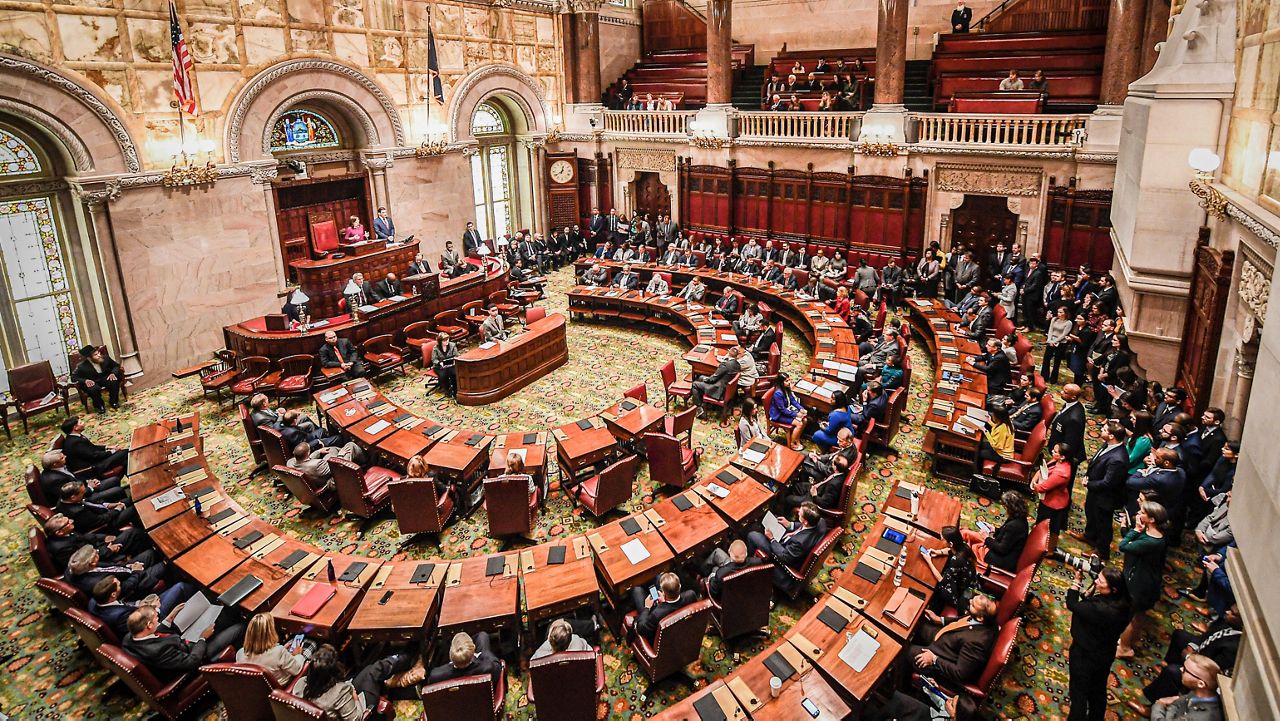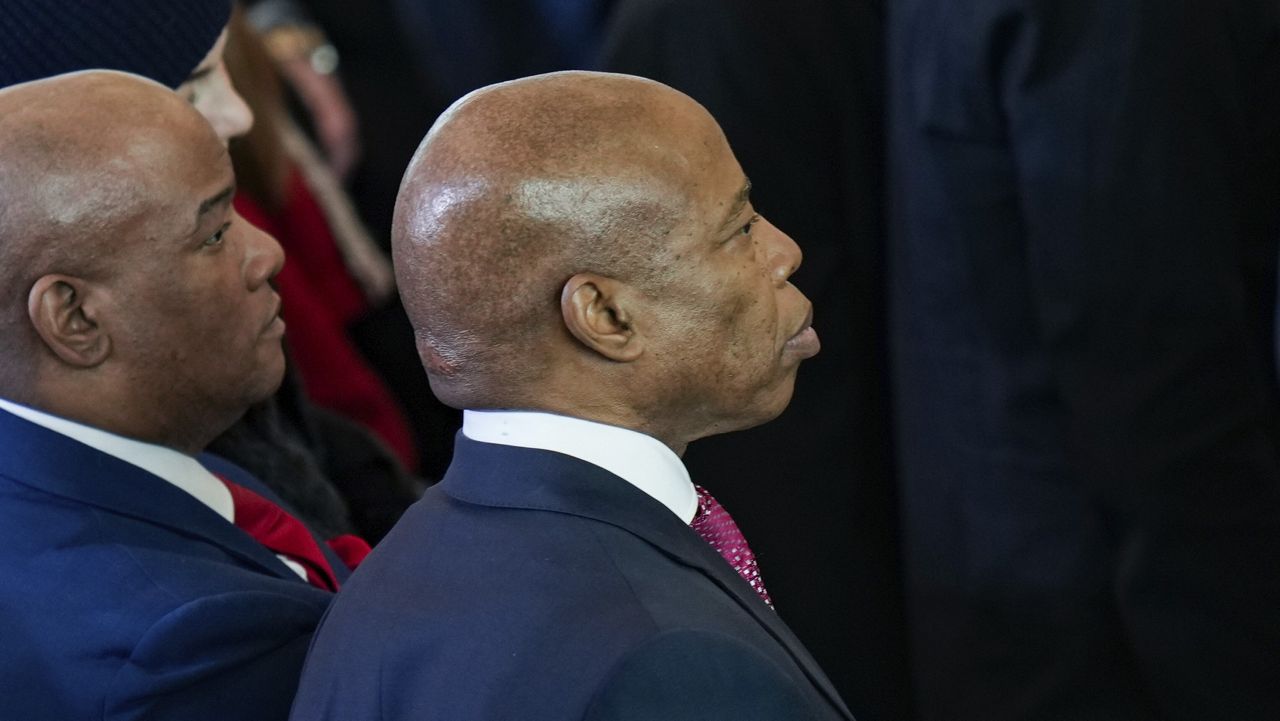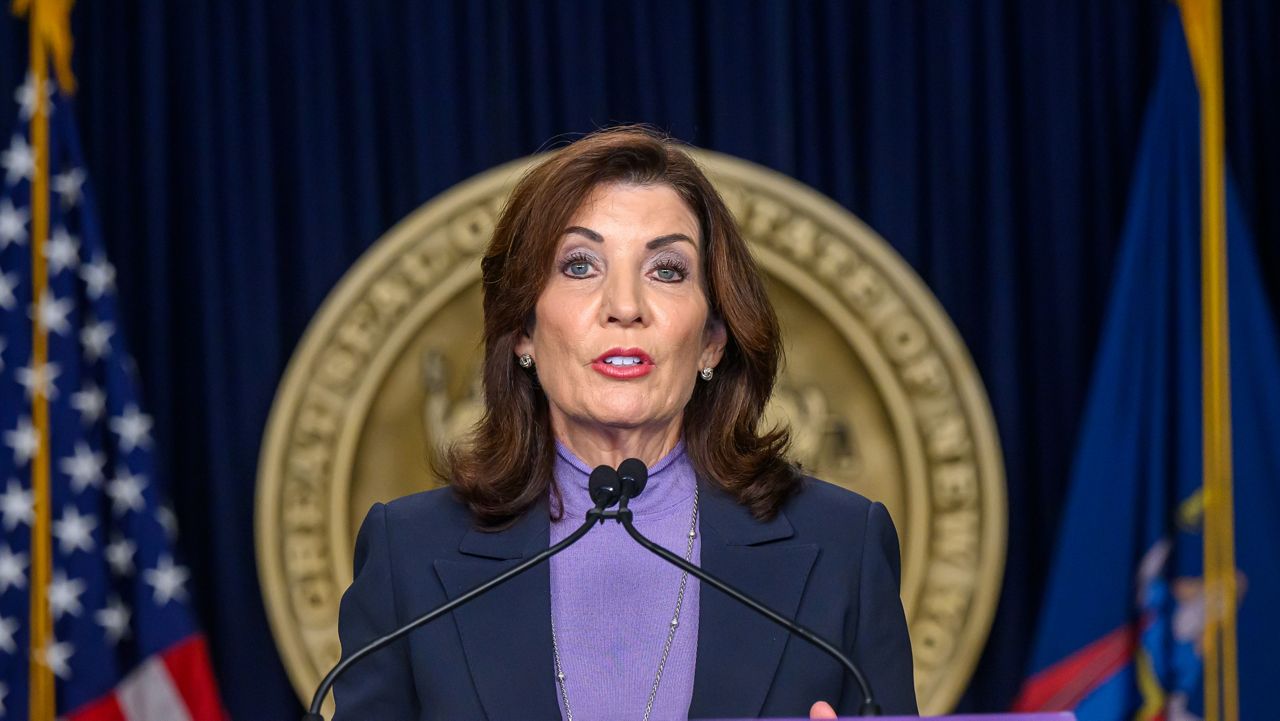As state lawmakers and Gov. Kathy Hochul negotiate potential ways of addressing the increased cost of gasoline in New York, some Republicans are calling for long-term relief.
But environmental organizations and transit organizations are skeptical a gas tax suspension or cap would have any benefit for the consumer, while at the same time starve mass transit systems and road and bridge projects of needed funding.
The per-gallon price of gasoline in New York has been above $4 over the last several weeks. Multiple states have moved to either suspend their collection of gas taxes for the rest of the year or create some sort of rebate program.
New Yorkers pay about 48 cents in total taxes when filling up at the pump.
On Monday, Republican state Sens. Jim Tedisco and Daphne Jordan proposed capping the state sales tax on gasoline when it reaches $2.25, and suspend it when it hits $3.
"We won't have to wait for everyone to agree on how we're going to do it," Jordan said. "It's a method that will be there in perpetuity."
Democrats in the state Senate this month proposed a gas tax suspension from May 1 through the rest of the year. But the Republicans insisted their plan should go further.
“It’s cold comfort for taxpayers for New York state government to try to fight inflation at the pump by waiting for a gallon of gas to cost $4 and only then suspending a portion of the gas tax for a brief period," Tedisco said.
Senate Minority Leader Rober Ortt says action is needed now.
"There's a lot of my constituents where this is the difference between paying their electric bill or putting enough gas in their car," Ortt said. "When the comment back is buy an electric car — I've looked at electric cars. Do you know what they cost? They cost a lot of money."
But not everyone is convinced a tax suspension would help drivers. Rachael Fauss of the government transparency group, Reinvent Albany, said there's reason for skepticism.
"We think it's counter to the state's climate goals and there's some evidence that gas tax changes in prices whethere's increases or decreases — they don't get passed onto consumers," she said.
New York is expected to generate $2 billion from the gas tax, with much of that money going to road and bridge repair as well as mass tranist systems. The lost revenue would have to be found elsewhere in the budget.
"We think it's not going to accomplish what folks think it will," Fauss said. "We think there are equity concerns about it disproportionately helping people who are wealthy versus those who are low income, like transit riders."








